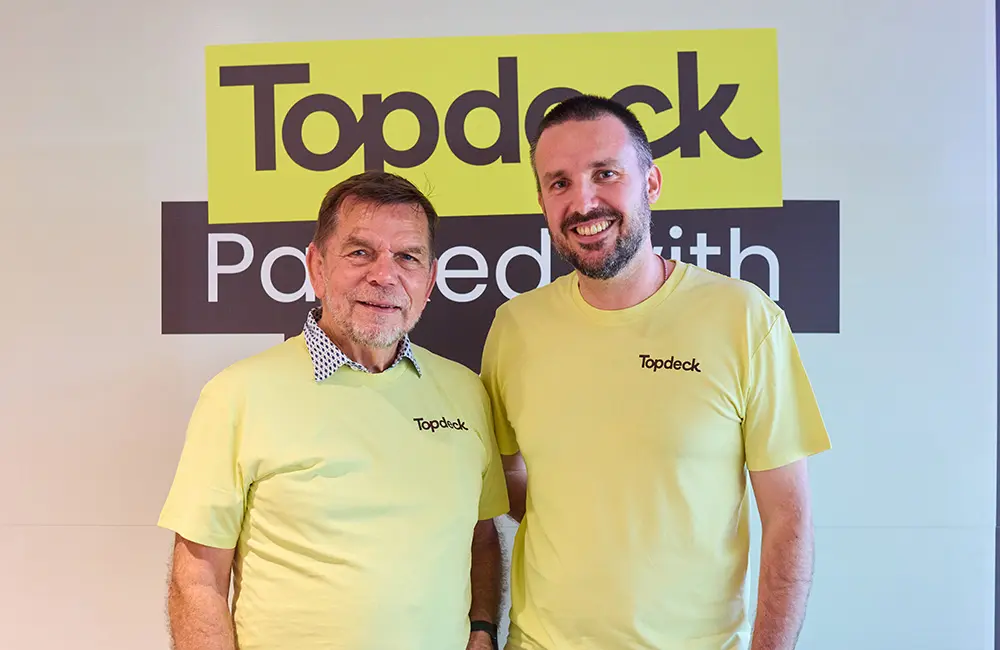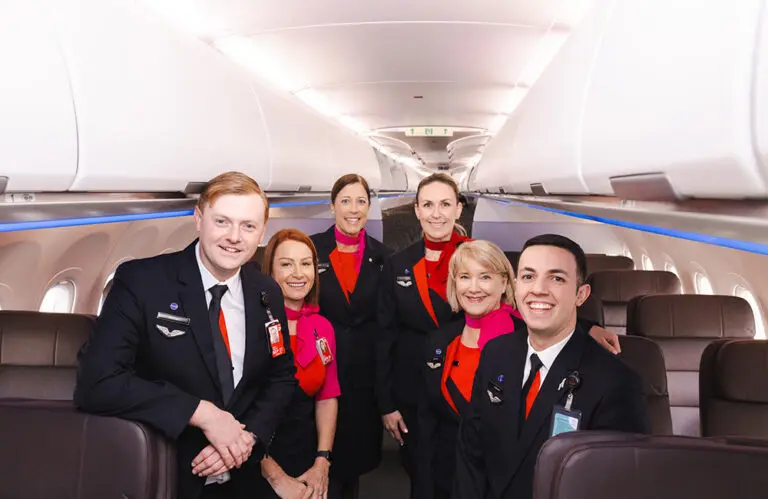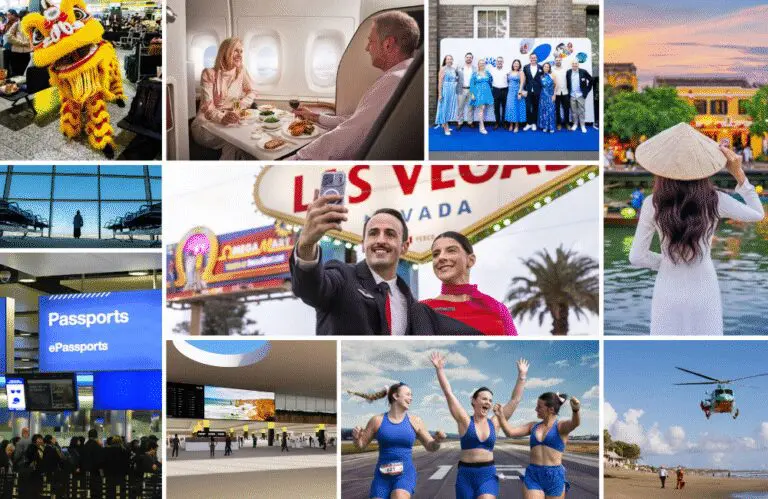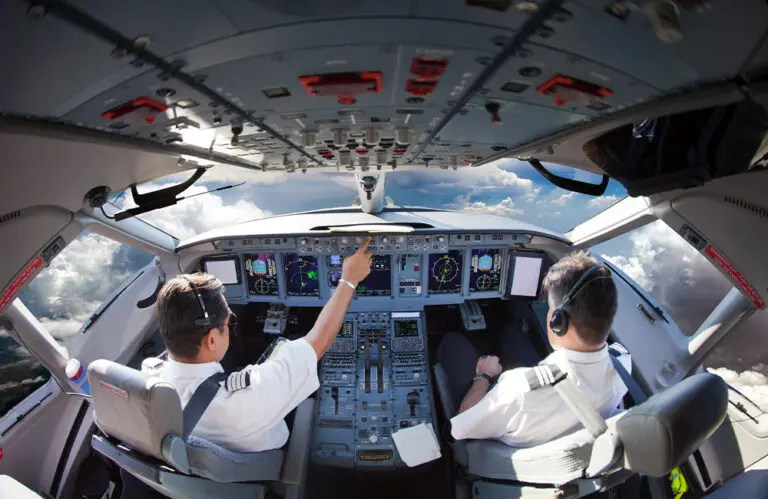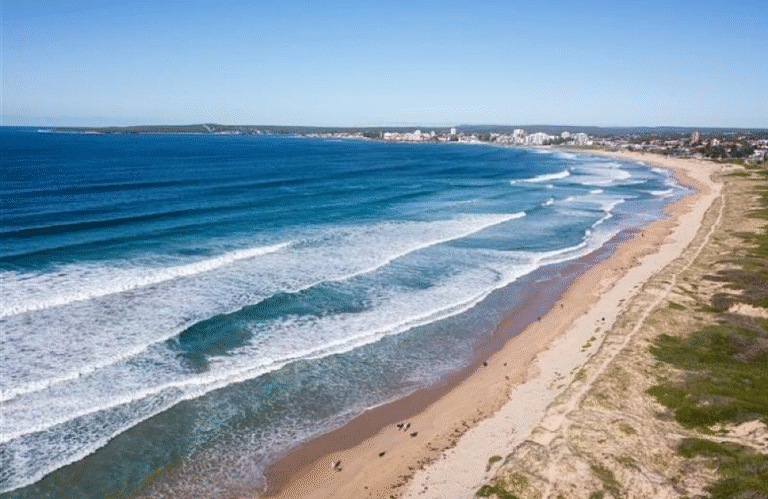In 2024, youth group travel company Topdeck was faced with a cliffhanger: Change direction fast or get off the bus forever. What happened next is disruptive, looking back to move forward.
Global Touring Managing Director Ed Pettitt’s brief was clear.
With the youth group travel market at a crossroads and tasked with turning around 18 months of declining sales and relevance for a product that Gen Z no longer wanted, Topdeck embarked on its biggest research project in eight years to uncover how the next generation wants to travel.
What they discovered was stark – big coach tours had fallen massively out of favour among this cohort, yet this was exactly the product Topdeck offered.
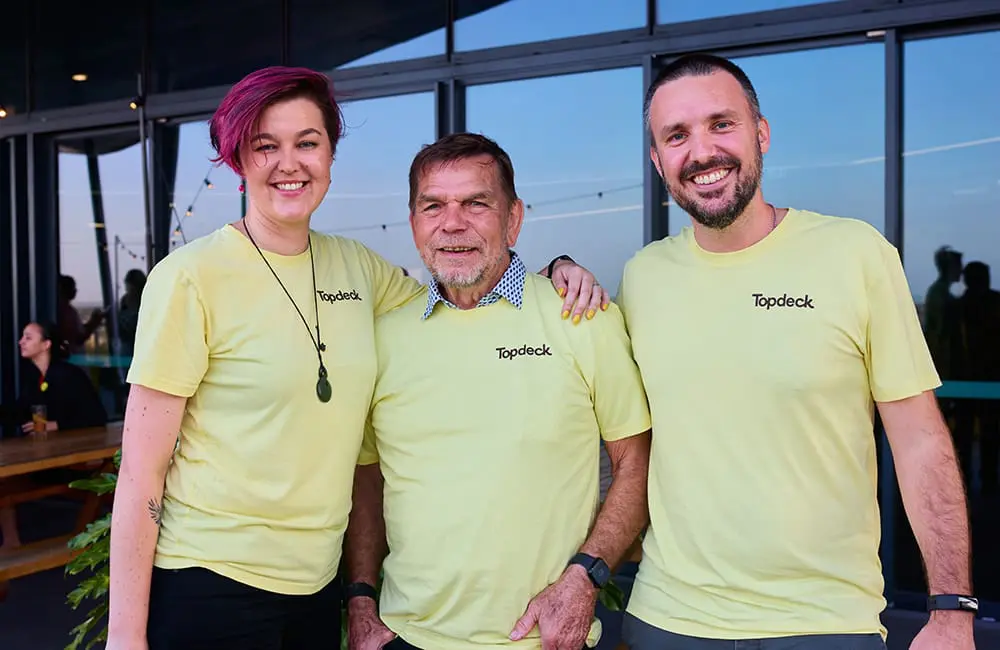
“Post-COVID, we’ve seen a really big transformation in how young people travel. Only two per cent prefer large groups. For brands that have been built for a different generation, how do you evolve to meet the needs of today?” Pettit says.
“The young traveller is travelling in more ways and in higher volumes than they’d ever travelled, which is positive for Topdeck and group touring brands, but we faced a challenge with a product built for a customer that was in its heyday 20 years ago.
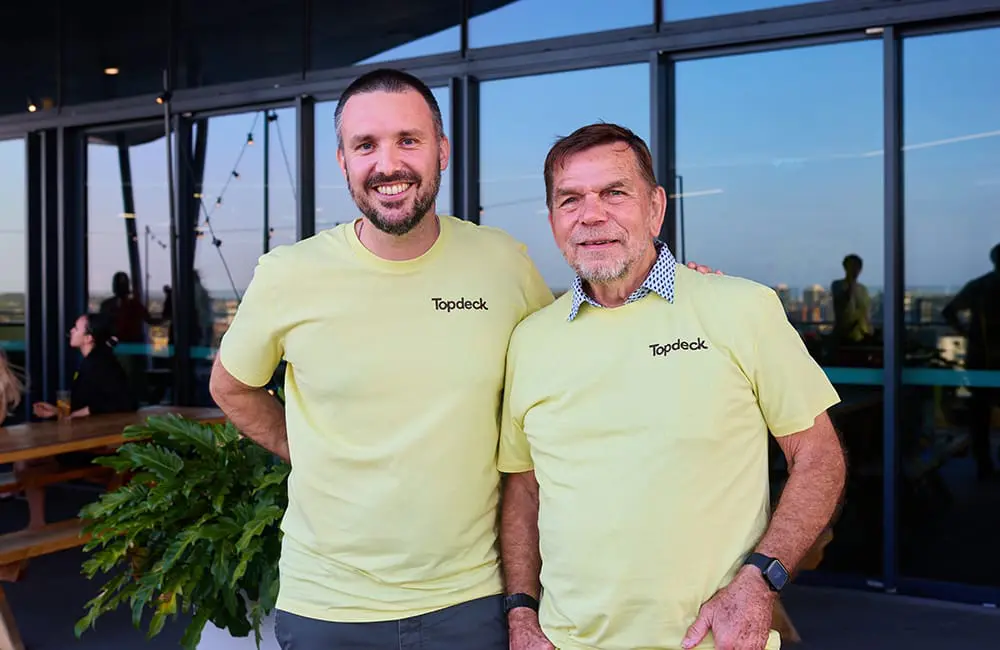
“Pace was a major consideration that came up in our research, and that went against the grain of the idea of young people travelling to ‘see as much as you can in three weeks’.
“People want to slow down, have genuine experiences and spend longer in key destinations, so we’ve built ‘do as much as you can in three weeks in fewer places’.
“This is not just a rebrand, it’s a full transformation and deep change in how we operate, taking the original DNA of Topdeck and making it relevant to today’s travellers,” Pettitt says.
The research prompted what’s known internally as Topdeck 3.0, shifting from large group tours to small-group experiences for better cultural immersion and allowing more authentic and local experiences that align with what Gen Z wants.
From the ‘70s to the ‘90s to today
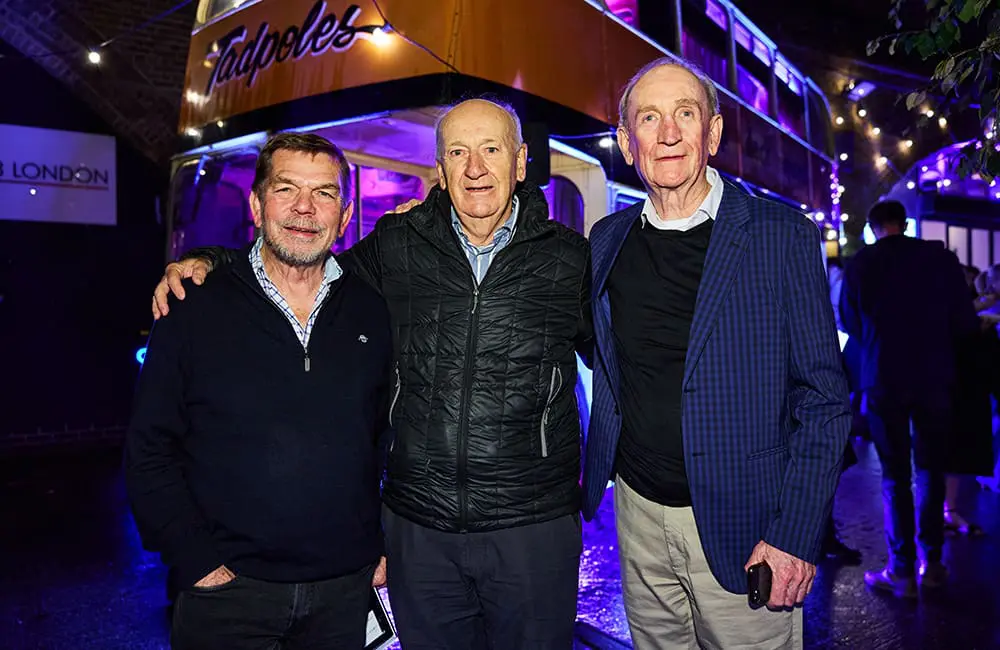
Topdeck forms Flight Centre Travel Group’s origin story when Graham “Skroo” Turner established the double-decker touring company in 1973 with some Aussie mates.
At the launch of Topdeck 3.0 in Brisbane, Turner recalls the scrappy startup that ran overland tours to Asia, North Africa and even a five-month trip from London to Sydney with around 20 passengers who slept aboard the double-decker buses.
Turner’s wife, Jude, takes me through some of the memorabilia on the walls at FCTG HQ, including brochures she helped design and candid shots of the early days.
“He said he wasn’t able to pay me, so I got a free Topdeck trip instead,” she says.
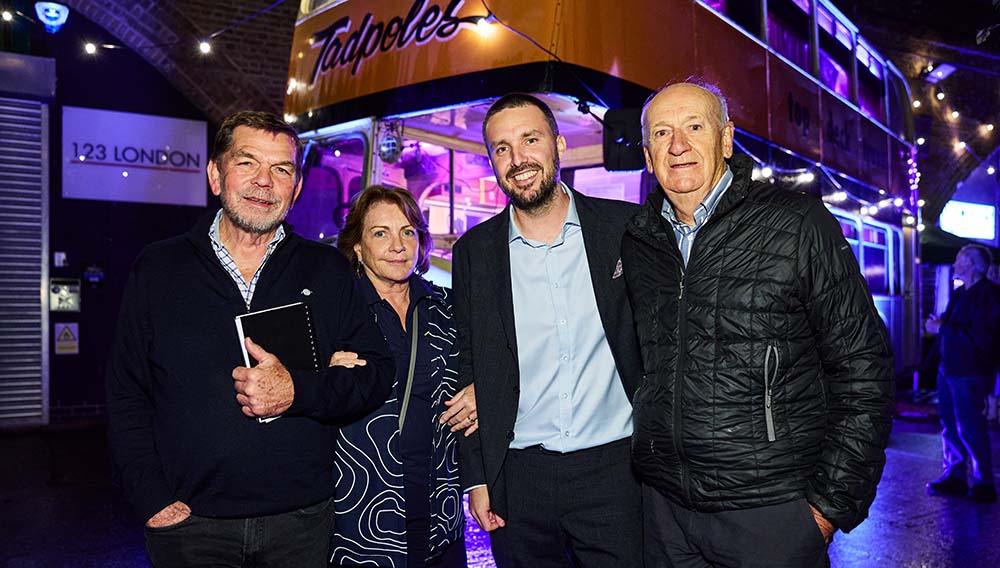
Turner shares the foundational myths that have made it into FCTG lore, from flooring a too-tall double-decker onto a ferry to cross the Straits of Gibraltar to bailing out clients from jail and even posing as a Christian minister to travel through Iran.
“There was a lot less regulation; you could basically go anywhere in Europe and most other countries without visas,” he recalls.
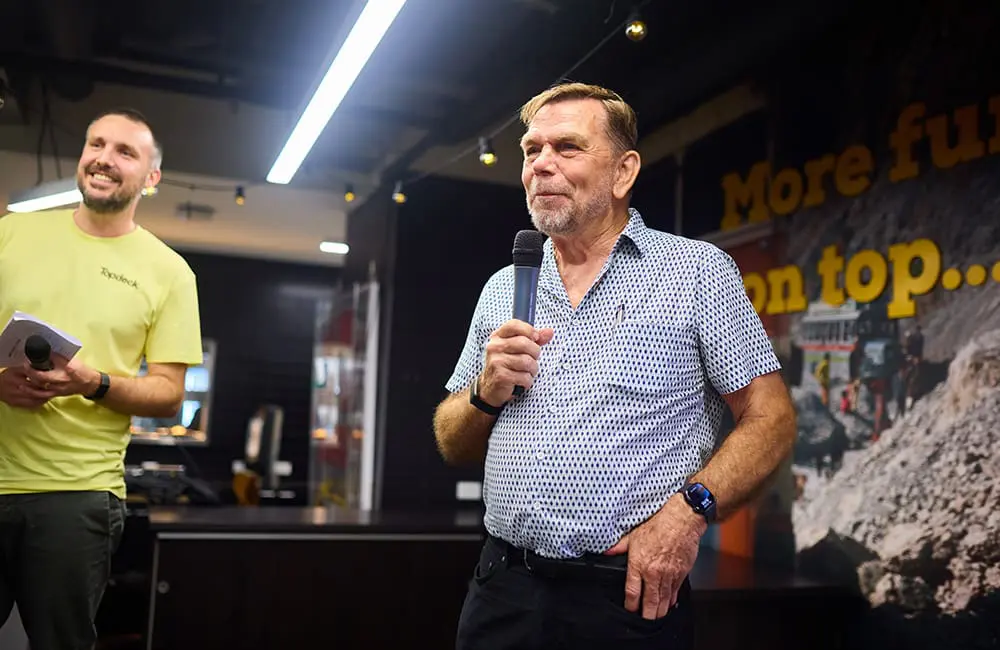
“To get everyone through Iran, we had to set up our own church. I had to confirm in writing that I was a minister and that every passenger was a Christian.
“You could do just about anything and not just get away with it, you didn’t even think about it. You just had to do what you had to do,” he said.
Turner explains that European Union emissions standards prompted the shift from double-deckers to 50-seater coaches in the 1990s, doubling the capacity and introducing camping, followed by hostels and hotels in the 2000s.
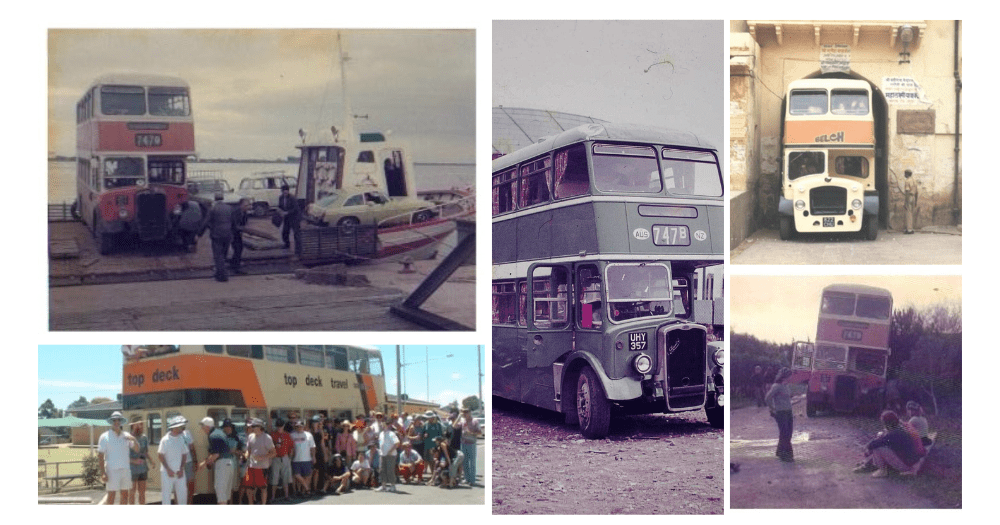
“When we competed in the ‘70s and ‘80s, we were quite unique – no one else was doing anything like us. [Topdeck 3.0] is much more like we started, it’s not too dissimilar a concept, but in a much more sophisticated 2020s model,” he says.
Operating large-group tours added restrictions – it meant more regimented schedules and made the provision of authentic food and cultural experiences impossible.
Traditional group tours were convenience-based, Pettitt says, focusing on logistics and seeing many destinations quickly, but the new approach reflects the original Topdeck DNA, focusing on small-group travel for a slower pace and deeper connection.
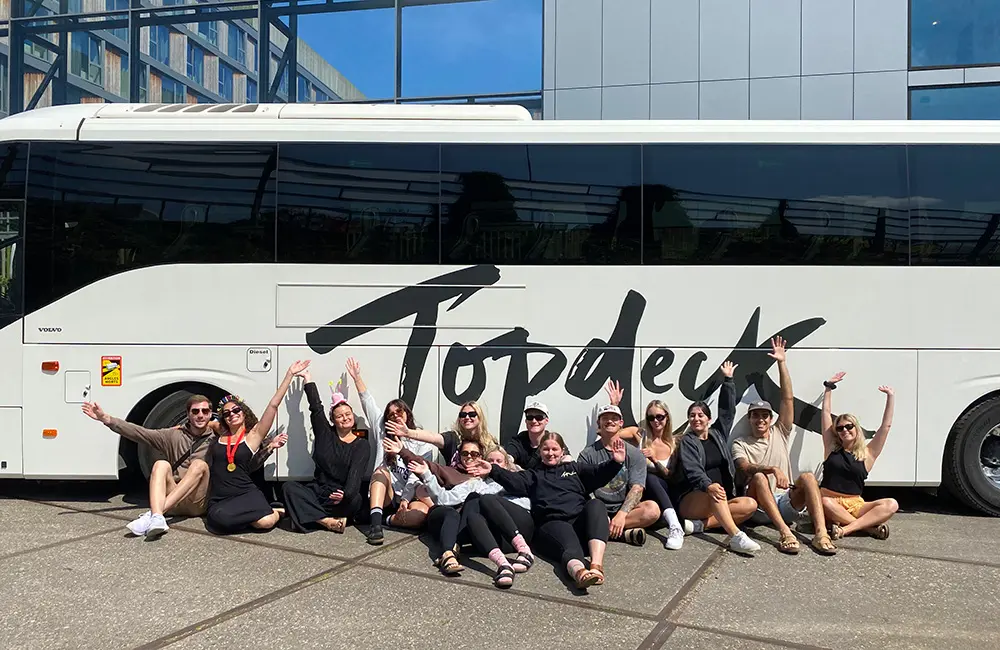
Petitt points out that Topdeck pioneered youth group travel, often forging new frontiers and taking risks as regulations eventually caught up with the travel style.
“One of the big things we’ve lost in the past 20 years, 10 years, five years is that sense of adventure, and I think a lot of that was being on big coaches, because the world is outside and you’re inside,” he says.
“We’ve shifted to using public transport where possible to reconnect to that adventure and get close to the destination you’re in by travelling like a local.”

It’s clear Turner approves of Topdeck’s latest evolution, paying tribute to Pettitt and the team’s vision and execution. While the logo and trip style may have evolved to cater for a new generation, what hasn’t changed is the pioneering brand’s adventurous spirit, instilling independence and ownership for its crew.
“Topdeck is our foundation business, and a lot of our culture came from Topdeck. It really defined what Flight Centre became,” Turner says.
It’s already been a big year for FCTG with its OG small-group travel company Back-Roads Touring also revealing a refreshed brand identity in May 2025.
Topdeck 3.0 launch

The all-new Topdeck launched on 25 September 2025, and Pettitt says the initial trade response has been overwhelmingly positive with the brand recently hitting a 12-month sales high.
The reduction in the age limit to 18-32 has also been well received by the market.
“Trade partners say the new approach makes sense and aligns with current customer preferences, emphasising connection and personalised experiences,” Pettitt says.
“It differentiates Topdeck from other youth travel brands and provides a significant opportunity for agents to offer a more relevant and attractive product to their customers.”
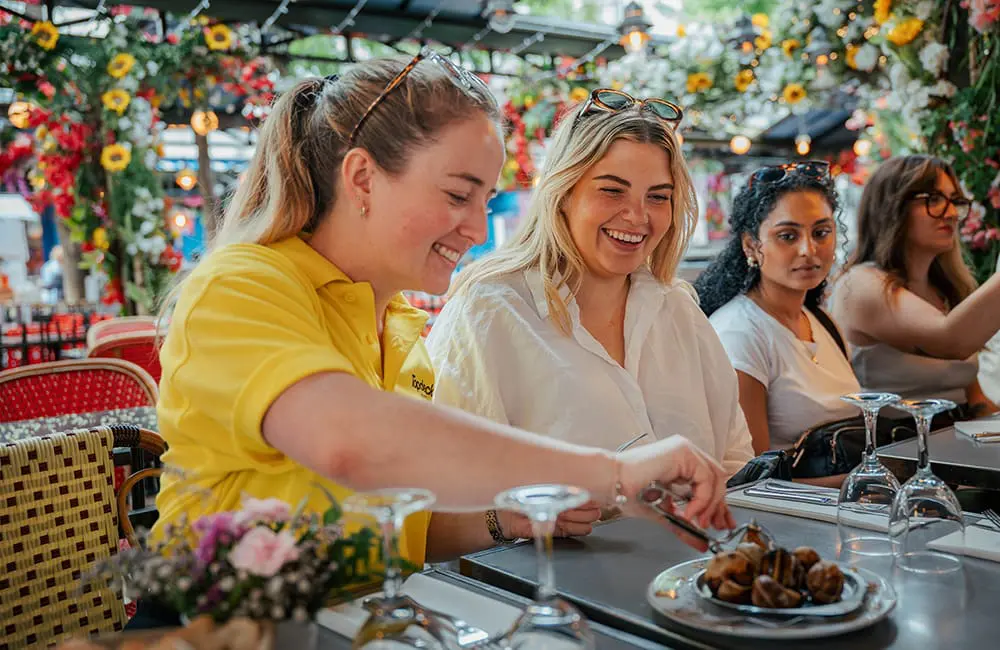
The new Topdeck product reduces group size from 48 to 18, focuses on time in destinations and includes more free time and food experiences.
“We’re packing the new Topdeck trips with just so many more experiences. It’s building a product, which we think is giving people what they want today, and that’s more time in destination, that’s not being defined by just coach travel,” Pettitt says.
“It’s taking local transport and putting more of our customers’ money and our customers’ time into the things they want to do, which is experience-rich travel.”
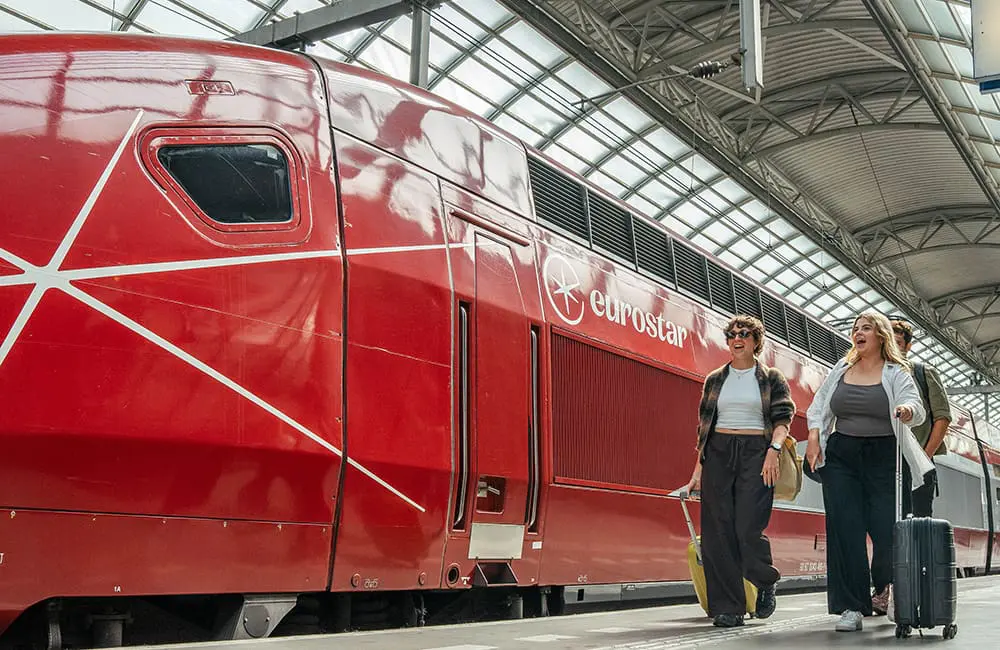
Topdeck itineraries in Europe, Asia, North Africa, Canada and New Zealand are now available for sale for departures from April 2026 and it will also explore new products in Asia to capitalise on growing demand.
Smaller groups also mean a 70 per cent increase in trip departures in 2026, allowing more flexibility for travellers to choose their preferred dates.
“It’s important to meet the changing needs of young travellers and this new approach will ensure Topdeck remains relevant and attractive to its core customer base,” Pettitt tells the FCTG crowd.
“Topdeck 3.0 is pretty different, but our DNA is so much of what we do in Flight Centre. It’s taking a few risks, it’s doing things a little bit differently, and we’re really proud of the amazing product, we’re confident in its uptake and excited for what the future holds.”
For more info, head to topdeck.travel


